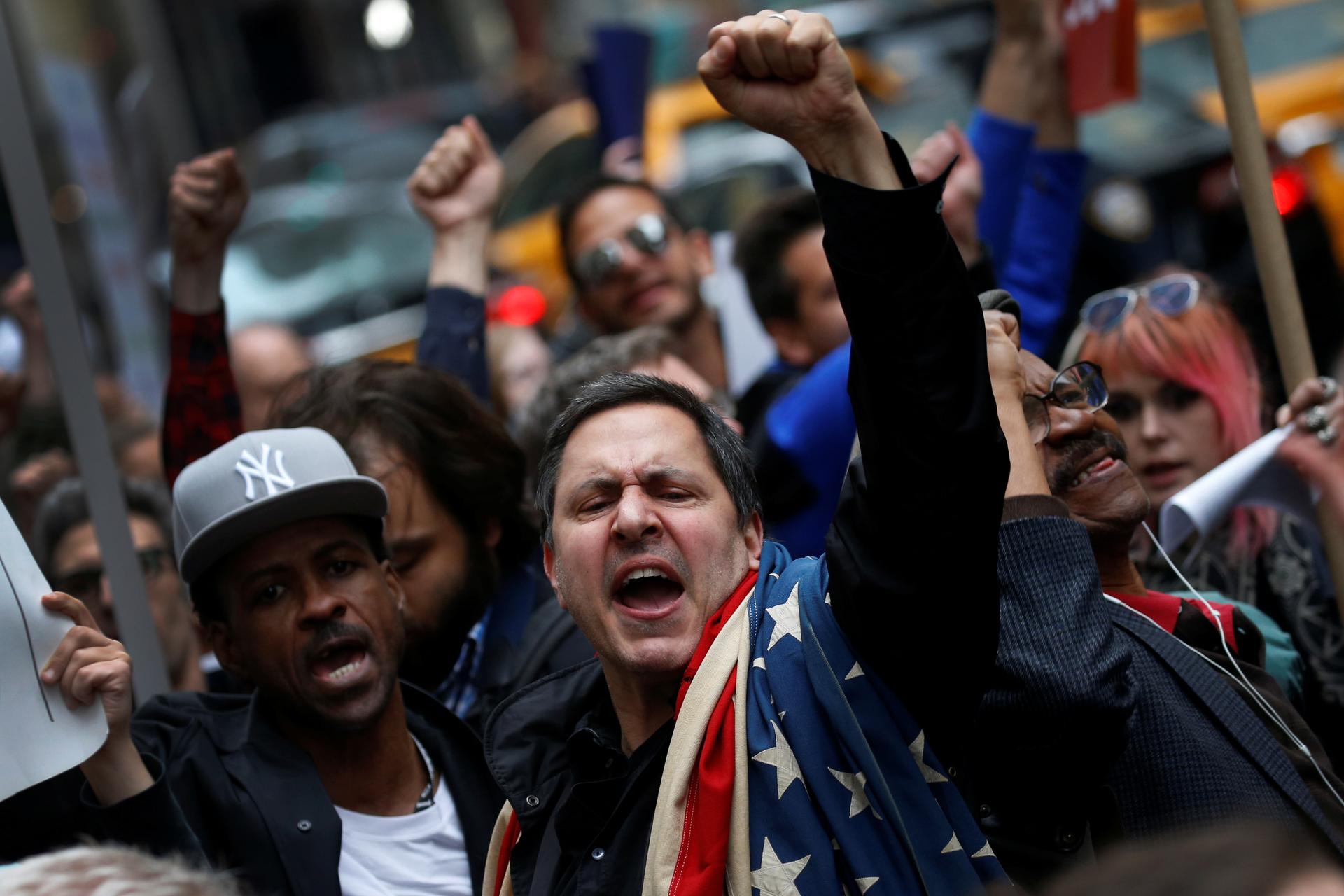Smiley: Our nation is confronting hard questions that require heart answers
Protesters demonstrate near Trump Tower against President Donald Trump in the Manhattan borough of New York City, May 4, 2017.
What the world needs now is love, sweet love,
It’s the only thing that there’s just too little of
What the world needs now is love, sweet love,
No not just for some but for everyone.
The great songwriter Hal David was onto something when he wrote these lyrics more than 50 years ago.
Sad to say, we have yet to heed his admonition.
I invoked these lyrics in a talk I gave recently, trying to convince the audience that our love and service to each other is the price we pay for the space that we occupy.
Justice for all, service to others, and a love that liberates people. That’s how we earn our right to be here, I posited.
It’s not uncommon for me to raise these themes when I address audiences, primarily because I don’t believe that we can legislate, mandate, innovate, or incarcerate ourselves out of the mess we’ve gotten ourselves into.
And the blow that Congress dealt Thursday to the nation's poor and elderly is shameful and disgraceful. When healthcare becomes a commodity that only the rich can buy, the poor will suffer and the elderly will just die.
But, frankly, for as deeply as I believe that love and service is the hallmark of our humanity, in the absence of real love, I’d take radical empathy.
Empathy … not unimaginative sympathy. I mean putting yourself in someone else’s shoes, seeing the world through their eyes, not just feeling sorry for them.
The problem is that too many fellow citizens have experienced “a loss of the empathetic response” the Oscar-winning screenwriter, producer and director John Ridley, shared with me recently on our broadcast.
Just days later, Gary Younge, author and writer for both the Nation and The Guardian, also appeared as a guest on our broadcast, and we too got into a conversation about the dearth and paucity of empathy in our society.
“First of all, I see segregation. There are chronically isolated areas [in America], every city has them. That’s one element to this lack of empathy. Another, I think, is with the disintegration of news sources. People are getting their information from very different places. Therefore, the common conversation that you need to have, not to agree, but to understand … OK, that’s where you’re coming from. There have been times when I’ve been to the NRA convention, or to a Republican meeting or the Republican convention, and I’ve had conversations with people who are working off entirely different — not just the odd story or two — but an entirely different narrative about how we got here.”
Younge went on to say, “Finally, I think that people want easy answers than exist.”
Amen to that.
Our nation is confronting hard questions that require heart answers. But our hearts seem hollow.
Ridley and I talked about the value of confronting truths in America, even if it means “breaking hearts.” Through our individual work and witness, each of us can give voice to human suffering, so the suffering isn’t rendered invisible.
“The benefit of breaking hearts is being able to see yourself in other people, to not just look at something that happens and turn the page or be emotionless about it,” said Ridley. “Nobody is more or less in the eyes of The Most High.”
Amen, again.
The great novelist Alice Walker is right, “This is a wonderful planet, and it is being completely destroyed by people who have too much money and power and no empathy.”
Do you have the courage to demonstrate your empathy?
